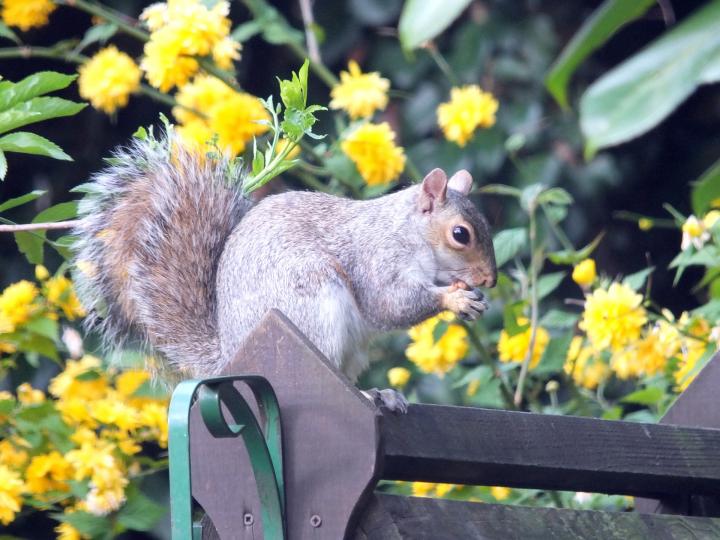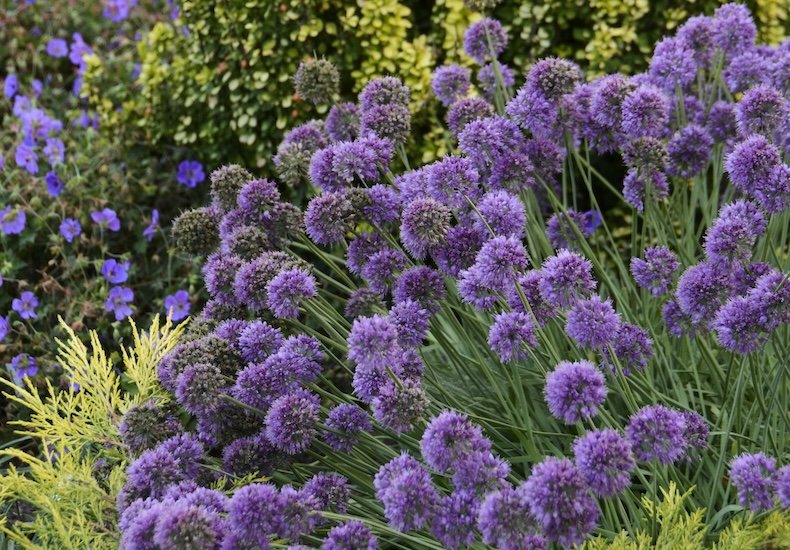Observing squirrels from afar can be enjoyable; however, they quickly become bothersome when they enter gardens and yards, unearthing bulbs, consuming fruits, and creating general disorder. Planting plants that naturally repel squirrels is a beautiful and eco-friendly way for individuals to safeguard their gardens without using harsh chemicals or traps. Besides deterring squirrels, these plants can enhance your garden’s aesthetic appeal and biodiversity.

Understanding Squirrel Behavior and Preferences
Squirrels are naturally curious creatures with a penchant for foraging. They are attracted to gardens because of the abundance of food sources such as nuts, seeds, fruits, and bulbs. Understanding their behavior is key to deterring them. Squirrels rely heavily on their sense of smell to locate food, so plants with strong scents or those that are unpalatable can effectively keep them at bay. Additionally, squirrels are deterred by certain textures and tastes, which can be leveraged to protect your garden.
Squirrels are inquisitive by nature and enjoy searching for food. The presence of abundant food, such as nuts, seeds, fruits, and bulbs, draws them to gardens. Understanding their actions is essential for deterring them. Squirrels depend significantly on their sense of smell to find food; therefore, plants with powerful fragrances or unpleasant tastes can effectively keep them away. Furthermore, specific textures and flavors discourage squirrels, which can be used to protect your garden.
:max_bytes(150000):strip_icc()/squirrel-in-garden-GettyImages-1295552508-13f3af23bbd940e3a2da34e25c4039e7.jpg)
The Importance of Using Natural Repellents
Using natural repellents like specific plants to deter squirrels is beneficial for several reasons. Firstly, it avoids the use of harmful chemicals that can damage the environment and pose risks to pets and other wildlife. Secondly, natural repellents can be a sustainable and cost-effective solution, as they often require less maintenance and can thrive in various conditions. Lastly, these plants can contribute to the ecological balance of your garden, attracting beneficial insects and other wildlife.
Employing natural deterrents, such as particular plants, to repel squirrels offers multiple advantages. Primarily, this method eliminates the need for damaging chemicals that can harm the environment and endanger pets and other creatures. Secondly, using natural repellents presents a sustainable and economical solution because they usually need less upkeep and can prosper in diverse environments. Finally, these plants can promote ecological harmony in your garden by drawing beneficial insects and various forms of wildlife.

Top 10 Squirrel-Repelling Plants to Consider
To effectively repel squirrels, consider incorporating a variety of plants known for their deterrent properties. These include alliums, daffodils, fritillaries, galanthus, hyacinths, lily of the valley, marigolds, mint, rosemary, and lavender. Each of these plants offers unique characteristics that make them unappealing to squirrels, whether through scent, taste, or texture.
Consider incorporating several plants known for their repellent qualities if you want to successfully keep squirrels away. These include lavender, rosemary, mint, marigolds, lily of the valley, hyacinths, galanthus, fritillaries, daffodils, and alliums. Every one of these plants possesses unique traits, such as scent, flavor, or texture, that render them unattractive to squirrels.

Alliums: A Natural Deterrent for Squirrels
Alliums, part of the onion family, are highly effective at deterring squirrels due to their strong odor. This includes garlic, onions, and ornamental alliums. The pungent smell of these plants is unpleasant to squirrels, making them an excellent choice for borders or interplanting with other vulnerable plants. Alliums are also easy to grow and can add striking visual interest to your garden with their unique spherical blooms.
Because of their potent scent, alliums, which belong to the onion family, are quite effective at deterring squirrels. This category includes garlic, onions, and decorative alliums. Squirrels find the strong fragrance of these plants disagreeable, making them an ideal option for planting along borders or among other sensitive plants. Alliums are not only simple to cultivate, but they also add remarkable aesthetic appeal to your garden with their unusual spherical blossoms.

How to Effectively Plant and Maintain Squirrel-Repelling Plants
To maximize the effectiveness of squirrel-repelling plants, consider strategic planting. Place these plants around the perimeter of your garden or near vulnerable plants to create a natural barrier. Ensure they are planted in well-drained soil and receive adequate sunlight, as most of these plants thrive in sunny conditions. Regular maintenance, such as pruning and deadheading, will keep the plants healthy and their deterrent properties strong.
Consider planting squirrel-repelling plants strategically in order to optimize their efficiency. To establish a natural barrier, put these plants around the edge of your garden or close to vulnerable plants. Because the majority of these plants flourish in sunny conditions, make sure they are planted in soil that drains well and gets enough sunlight. Regular upkeep, including trimming and deadheading, will maintain the plants’ health and keep their repellent qualities strong.

Additional Tips for Keeping Squirrels at Bay
In addition to planting squirrel-repelling plants, there are other strategies you can employ to keep squirrels away. Removing food sources, such as fallen nuts and fruits, can reduce their attraction to your garden. Installing physical barriers like mesh or netting around vulnerable plants can provide extra protection. Additionally, using motion-activated sprinklers or ultrasonic repellents can further deter squirrels without causing harm.
Besides planting plants that repel squirrels, consider other strategies to keep them away. To make your garden less appealing to them, eliminate sources of food, like dropped fruits and nuts. You can enhance safety by putting in physical barriers, like mesh or netting, around susceptible plants. Moreover, you can further deter squirrels without hurting them by using ultrasonic deterrents or motion-activated sprinklers.

Conclusion: Achieving a Squirrel-Free Garden
By incorporating squirrel-repelling plants into your garden, you can enjoy a beautiful and thriving outdoor space without the disruption caused by these furry intruders. Combining these natural deterrents with other preventive measures will create a holistic approach to squirrel management, ensuring your garden remains a peaceful haven for you and other beneficial wildlife.
You can create a stunning and flourishing outdoor area by adding squirrel-repelling plants to your garden, free from the interruptions of these hairy pests. Combining these natural repellents with other preventative actions will offer a comprehensive strategy for managing squirrels, guaranteeing that your garden continues to be a tranquil sanctuary for both you and other helpful wildlife.

